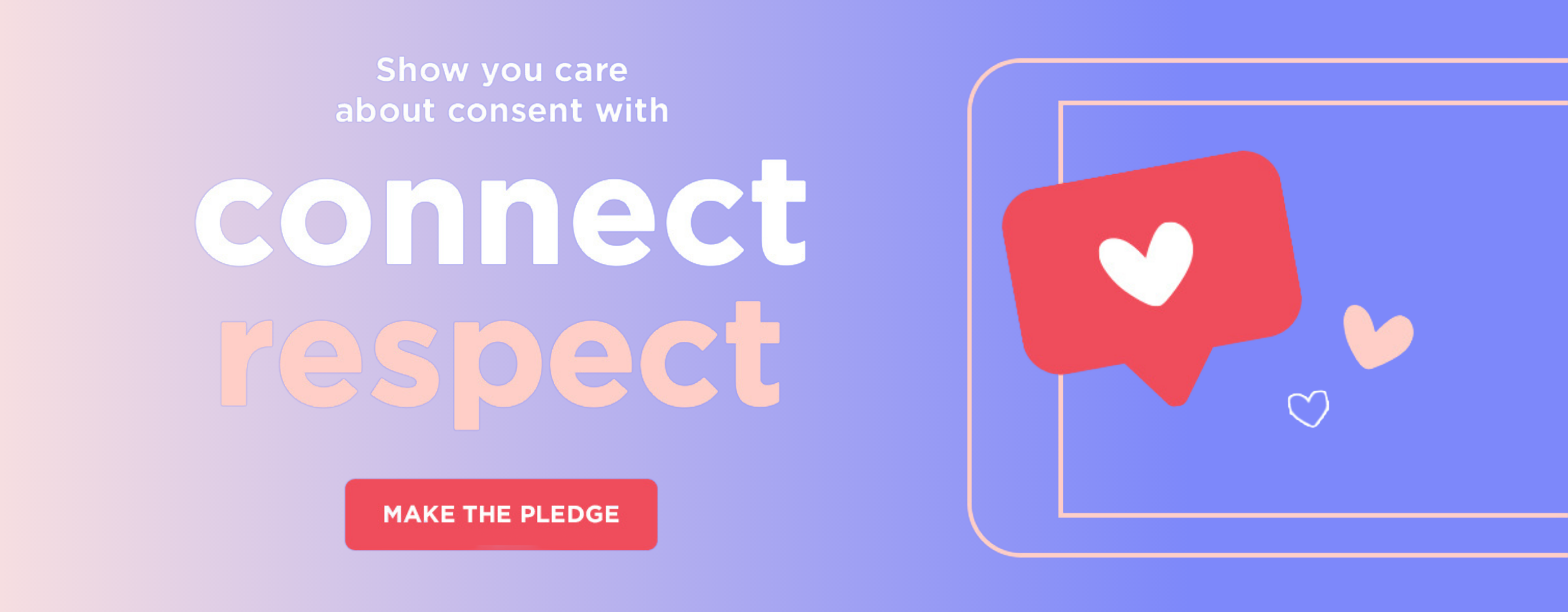
“It’s like prepping for a job interview.” Bartholomew* is explaining how he set up his dating app profile. He goes on to say that it’s important to highlight the most appealing things about yourself and your personality to get good matches.
We’re all familiar with what this looks like: finding pictures with your most flattering camera angles, carefully selecting your best travel story, or asking your friends whether the joke in your bio is actually funny.
Unfortunately, these aren’t the only concerns–some people on dating apps assume that because someone has a profile or shares a few details about themselves that it’s okay to send sexually explicit messages without getting consent. It’s not.
bTorey has used dating apps for years, and said that she is intentionally very cautious and covered up on her profile. She’s made these choices as a “defense mechanism,” because she’s worried that presenting herself differently might lead to sexual comments or harassment. She’s concerned that her matches might believe she is consenting to sexual conversations or activity if her profile is racier than PG.
Cee* echoed that she has carefully selected the images on her profile so as not to seem like she wanted to hook up. Unfortunately, this has actively limited her ability to present herself fully: “I was a swimmer in college, and had a picture of myself competing in a one-piece.” The picture got so many comments, specifically about her body (rather than her athletic interests), that she decided, “they don’t have to see my body.” She was particularly self-conscious because some of her friends had experienced sexual violence in the past. A similar picture that showed less of her body got significantly less attention on the app. Cee feels like her matches thought that because she showed a photo of herself in a swimsuit, they were entitled to discuss her body or share sexual comments.
Elaine’s* profile dared to be more flirtatious. In her bio, she created a pros and cons list for dating her. The cons: that she was a Patriots fan and a vegetarian and didn’t like beer. The pros: that she had a “nice butt, and might let you touch it.” She said that because of this one coy comment, she received numerous graphic and sexual invitations. She said her matches appeared to feel entitled to her consent for this behavior simply because of one flirtatious line, and because she was on a dating app at all.
Lilly* said that she wanted her profile pictures to look “pretty, but not overtly sexy.” She avoided photos taken in clubs, or where she was wearing more revealing clothes. When asked why, Lilly was clear: “I’ll be objectified if I seem sexy or like partying; I won’t be an equal.” In Lilly’s experience, she could only be taken seriously, or seen as intelligent, if she were more covered up. In an effort to prevent this objectification and harassment, she’s chosen not to share her love of dancing, nightlife, or social engagements on her profile. Sometimes, that still isn’t enough.
Lilly belonged to a dating app known for more casual connections. When matches sent her unsolicited sexual comments and invitations, she sometimes complained, and sometimes didn’t respond. Matches would reply that she did not have the right to be surprised or offended, or to refuse. Echoing Elaine’s experiences, they felt entitled to these conversations because Lilly had an account on the app at all.
Sometimes, even a person’s identity can be assumed to guarantee consent. Erica* said that her matches sometimes issued graphic sexual invitations solely based on the fact that she identified as bisexual in her profile. These matches never asked for her consent, instead assuming that her openness about her sexual orientation somehow justified graphic advances.
This is not okay. It’s important to realize that a dating profile is never ‘asking for’ sexual invitations or conversations, no matter what platform it’s on. On their own, no photo or aspect of a public dating profile amounts to consent for sexual activity or sexualized comments; you should have clear permission before sending those kinds of messages.
If you’ve received unwanted messages, remember that you have the option to block and report the user. This feedback can help dating apps identify bad actors and remove them for violating community guidelines.
You can show your commitment to real consent, and your desire for matches who are similarly committed, by sharing #ConnectRespect on your dating profiles.
*Name changed at their request.



 Sprache
Sprache 







